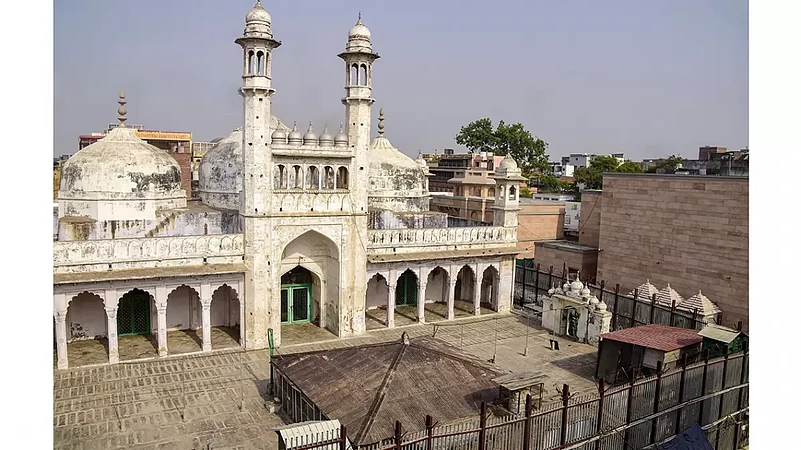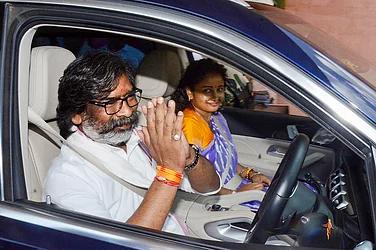The Allahabad High Court on Friday reserved its judgement on a civil revision petition filed by the Gyanvapi mosque committee challenging a Varanasi court order turning down its objections to the maintainability of a plea seeking permission to offer regular prayers to idols of deities in the mosque compound.
Allahabad High Court Reserves Verdict On Gyanvapi Mosque Case
On Friday, the counsel for the petitioner, Senior Advocate SFA Naqvi, contended before the court that the claim of the Hindu side that the devotees were restrained from worshipping Shringar Gauri and other deities on the outer wall of Gyanvapi in the year 1993 is an artificial claim and an example of clever drafting.

Justice J J Munir reserved its order after hearing the counsel of both sides at length.
On Friday, the counsel for the petitioner, Senior Advocate SFA Naqvi, contended before the court that the claim of the Hindu side that the devotees were restrained from worshipping Shringar Gauri and other deities on the outer wall of Gyanvapi in the year 1993 is an artificial claim and an example of clever drafting.
According to him, no order was passed by the then state government in writing in 1993.
According to him, the aforesaid claim has been made only to avoid the application of the Places of Worship Act, 1991, which bars filing of a suit for conversion of any religious place as existed on August 15, 1947.
The present suit is barred by the Act of 1991, Limitation Act and Waqf Act, Naqvi submitted.
He pointed out that even if the claim of Hindu side is accepted, why they did not file suit in 1993 when they were so restrained or thereafter. Hence, this suit filed before the Varanasi court is barred under the Limitation Act, which bars filing of suit for declaration after three years of incident.
Earlier, at one stage the counsels representing the Hindu side had taken the plea that old maps showed the existence of Hindu deities on Gyanvapi mosque and the Hindu devotees were regularly worshipping Shringar Gauri and other deities on the outer wall of Gyanvapi since long and it was only in the year 1993, the then government restrained regular worship.
Hence, the Act of 1991 is not applicable to them. Further, they claim that the place in dispute is not a Waqf property.
Earlier, the petitioner, Anjuman Intejamia Masajid, which manages the Gyanvapi mosque, had opposed the claim of the Hindu side on the plea that the suit before the court below is barred under the Places of Worship Act, 1991, which provides that no suit can be filed seeking conversion of any religious place as existed on August 15, 1947.



















